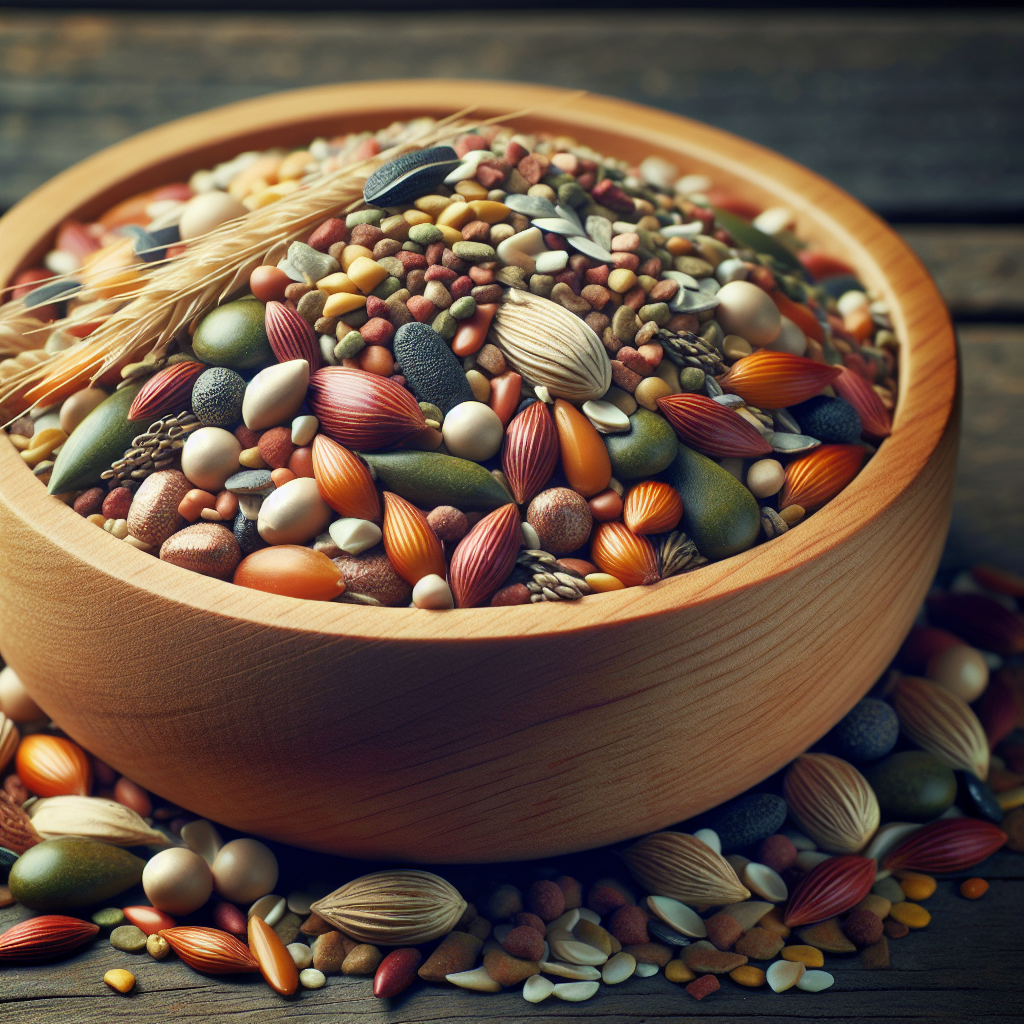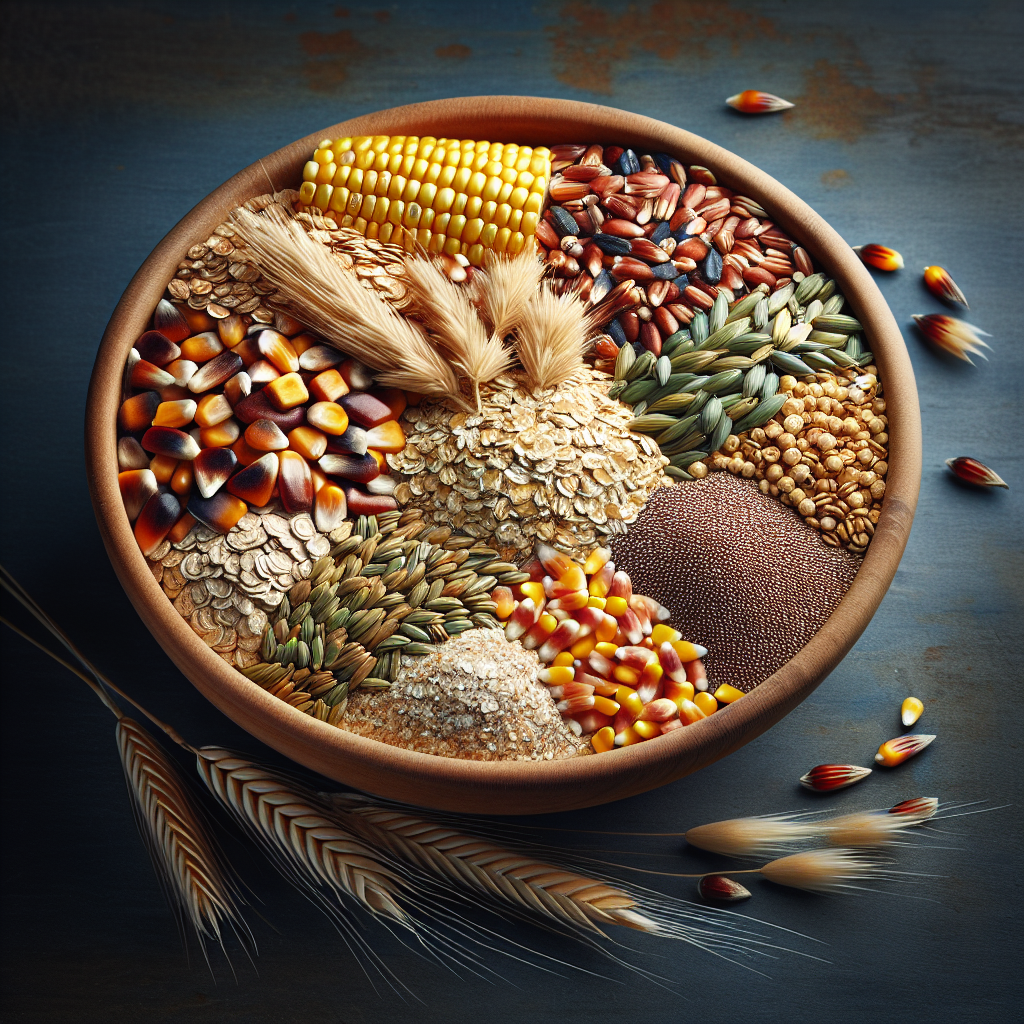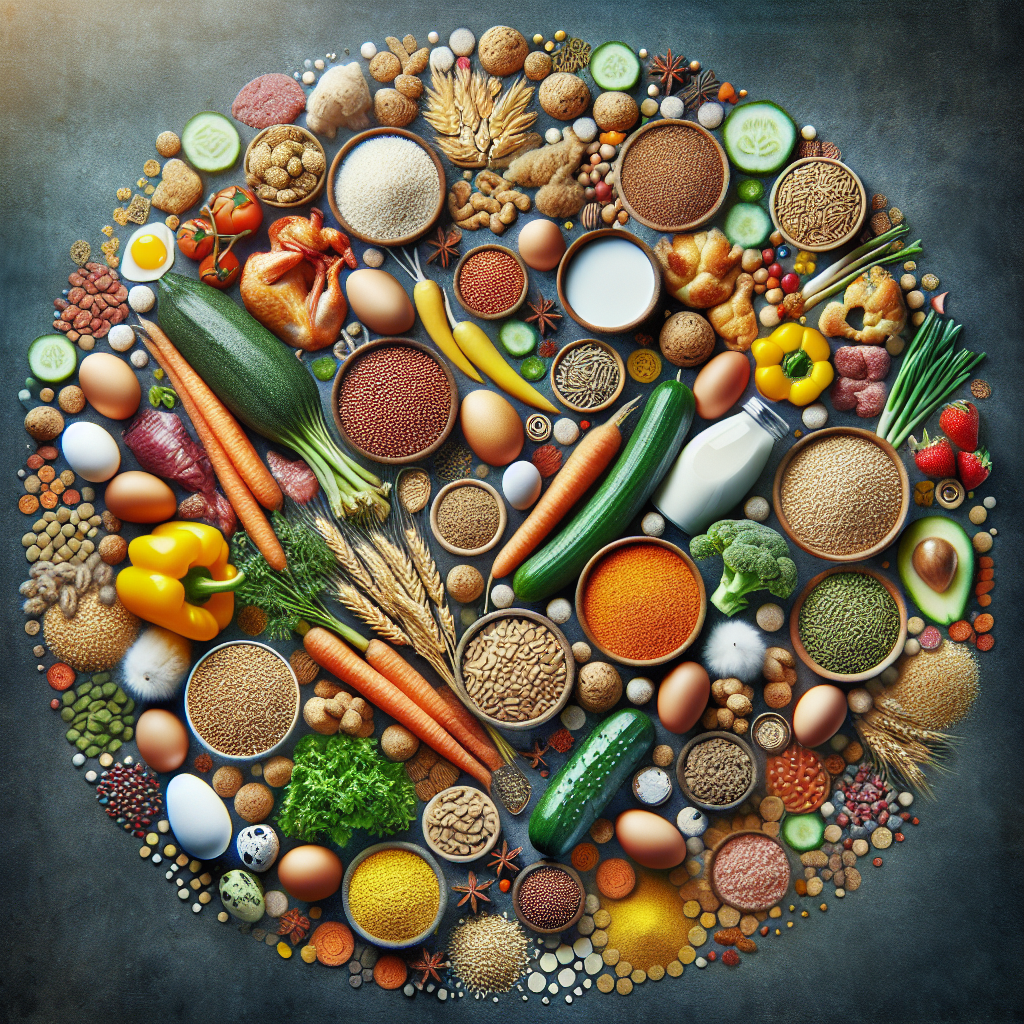Are you curious about the differences between organic and non-organic chicken feed? Well, look no further as this article explores just that! You may be surprised to learn that the composition of organic chicken feed differs significantly from its non-organic counterparts. From the types of ingredients used to the farming practices involved, understanding these distinctions is essential for anyone interested in making informed choices about the food they provide for their feathery friends. So, let’s jump right in and uncover the fascinating world of organic chicken feed!
Organic Chicken Feed vs. Non-Organic Options
Introduction to Organic and Non-Organic Chicken Feed
When it comes to raising chickens, one important aspect to consider is their diet. The feed you provide to your chickens plays a vital role in their overall health and the quality of the eggs or meat they produce. Two main options for chicken feed are organic and non-organic. Organic chicken feed is specially formulated to meet the strict standards set by organic certifying bodies, while non-organic feed may include a variety of ingredients that may or may not be organic. In this article, we will delve into the differences between these two options and explore why some chicken owners prefer to feed their flock with organic feed.
The Importance of Organic Chicken Feed
Organic chicken feed is gaining popularity among chicken owners for various reasons. Firstly, choosing organic feed ensures that your chickens receive a diet free from synthetic pesticides, herbicides, and genetically modified organisms (GMOs). These chemicals and genetic modifications may have potential negative effects on the health and well-being of the chickens, as well as on the quality of the eggs or meat produced. By opting for organic chicken feed, you are prioritizing the health and natural growth of your chickens.
Principal Differences in Composition
One of the key distinctions between organic and non-organic chicken feed lies in their composition. Organic chicken feed is crafted using a combination of organic grains, seeds, and legumes. These ingredients are grown without the use of synthetic chemicals, ensuring their purity and adherence to organic standards. On the other hand, non-organic chicken feed may contain a mix of organic and non-organic ingredients, including conventionally grown grains and seeds that have likely been exposed to pesticides and other chemicals during cultivation.
Organic Standards for Chicken Feed
To be labeled as organic, chicken feed must meet a set of strict standards outlined by organic certifying bodies. These standards typically include requirements such as the use of organic feed ingredients, prohibiting the use of synthetic pesticides and fertilizers in the cultivation of these ingredients, and ensuring that the feed is free from genetically modified organisms (GMOs). These standards are in place to safeguard the health and well-being of the chickens, as well as to provide consumers with transparency and confidence in the organic chicken feed they purchase.
Ingredients Used in Organic Chicken Feed
Organic chicken feed is formulated using a variety of organic ingredients that promote the overall health of the birds. These ingredients often include organic grains like corn, wheat, and barley, organic legumes such as soybeans and peas, and organic oilseeds, including sunflower and flaxseed. Additionally, organic vitamins and minerals are added to ensure that the chickens receive a well-balanced diet. By using these organic ingredients, you are providing your chickens with a wholesome and natural source of nutrition.
Ingredients Used in Non-Organic Chicken Feed
Non-organic chicken feed may contain a wide range of ingredients, both organic and non-organic. Conventionally grown grains like corn and soy are commonly used in non-organic feed, alongside synthetic vitamins and minerals. One important distinction between non-organic feed and its organic counterpart is the possibility of including genetically modified ingredients. Genetically modified corn and soy, for example, may be present in non-organic feed. For chicken owners who prioritize a completely natural and GMO-free diet for their flock, organic feed is the better option.
GMO-Free and Pesticide-Free Alternatives
If you are concerned about the presence of GMOs and pesticides in your chicken feed, opting for organic options is key. Organic chicken feed is guaranteed to be free from GMOs and synthetic pesticides. If you are unable to find organic feed for your chickens, another alternative is to explore GMO-free and pesticide-free options. Some manufacturers produce feed that is specifically labeled as GMO-free and pesticide-free, providing a healthier alternative for those unable to access organic feed.
Considerations for Chicken Health
The quality of the feed you provide to your chickens directly impacts their health. Organic chicken feed, with its pesticide-free and GMO-free composition, is often believed to contribute to healthier, happier chickens. By eliminating potential toxins and genetically modified components from their diet, you are reducing the risk of health issues and supporting their natural growth. It’s important to note that a well-balanced diet, regardless of whether it’s organic or non-organic feed, is crucial for ensuring optimal chicken health.
Environmental and Sustainability Aspects
The choice between organic and non-organic chicken feed also has implications for the environment and sustainability. Organic feed production adheres to strict environmental standards, focusing on sustainable farming practices and minimizing the use of synthetic chemicals. By choosing organic feed, you are supporting a more environmentally friendly approach to farming and reducing the overall ecological impact associated with conventional agriculture.
Cost Considerations and Consumer Choices
It is important to acknowledge that organic chicken feed may come at a higher cost compared to non-organic options. The stringent organic standards, the use of organic ingredients, and the additional certifications involved in producing organic feed contribute to its higher price. However, many chicken owners view this as a worthwhile investment in the health and well-being of their flock. Ultimately, the choice between organic and non-organic chicken feed depends on your personal values, budget, and the availability of organic options in your area.
In conclusion, the composition of organic chicken feed differs significantly from non-organic options. Organic feed adheres to strict standards, uses organic ingredients, and is free from synthetic pesticides and GMOs. Non-organic feed, on the other hand, may include both organic and non-organic ingredients, including conventionally grown grains and synthetic additives. When considering the health of your chickens and the overall sustainability of your farming practices, organic feed offers a more natural and environmentally friendly option. However, cost considerations and personal preferences ultimately dictate the choice between these two feed options. By making an informed decision, you can provide your flock with the best possible diet and support their overall well-being.




